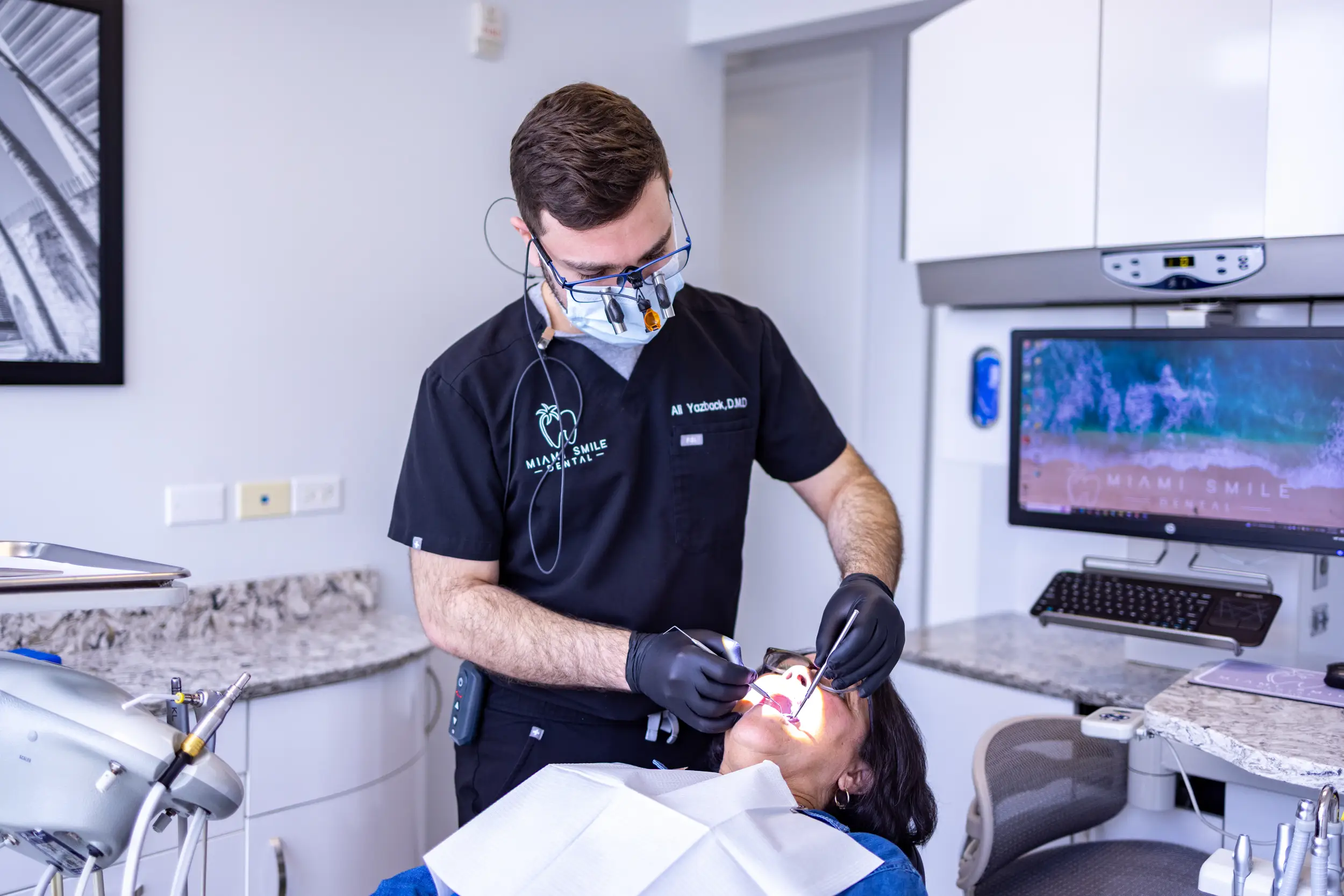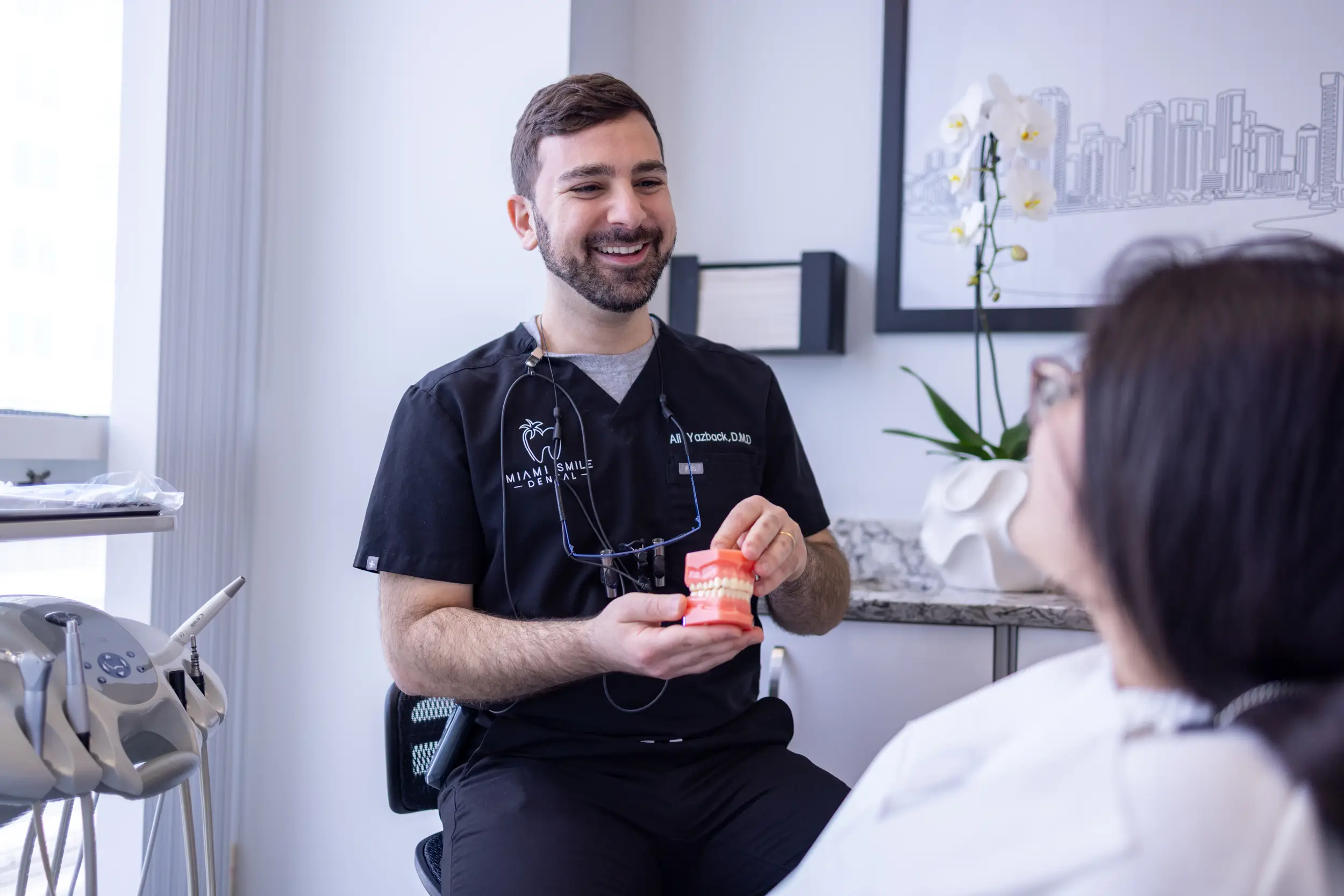We are committed to providing quality healthcare to families located in the Miami area and treat patients of all ages. We provide comprehensive solutions for our patients' oral health needs. Believing in the importance of listening to our patients, we take the time to truly understand each person's needs, goals, and lifestyle. By understanding our patients' objectives we can provide solutions that will improve their health while transforming their smile into something bright and beautiful.




Miami Smile Dental offers a range of services to meet every patient’s oral health needs. By combining quality patient care with up-to-date technology, we are able to treat patients of all ages in a comfortable and relaxing setting. Our website includes information on the following items: Dentist, Cosmetic Dentist, Emergency Dentist, Kid-Friendly Dentist, Teeth Whitening, Dental Bridges, Dental Fillings, Gum Disease Treatment, Implant Crowns, Dental Implants and more. Our dentist and experienced team are trained to not only treat patients but to identify what caused the health concern in the first place. This comprehensive approach sets patients of Miami Smile Dental on the road to recovery and long term oral health.
Miami Smile Dental offers a range of services to meet every patient’s oral health needs. By combining quality patient care with up-to-date technology, we are able to treat patients of all ages in a comfortable and relaxing setting. Our website includes information on the following items: Dentist, Cosmetic Dentist, Emergency Dentist, Kid-Friendly Dentist, Teeth Whitening, Dental Bridges, Dental Fillings, Gum Disease Treatment, Implant Crowns, Dental Implants and more. Our dentist and experienced team are trained to not only treat patients but to identify what caused the health concern in the first place. This comprehensive approach sets patients of Miami Smile Dental on the road to recovery and long term oral health.
Our routine dental care includes cleanings, exams, and preventive treatments. We also cater to those with dental anxiety, ensuring comfort during visits. We offer emergency care, root canals to save infected teeth, and extractions when needed, all focused on maintaining your oral health.
Our cosmetic dental treatments improve the look of your smile with treatments like composite fillings and dental bonding to repair imperfections. We offer custom dental crowns for damaged teeth and veneers to improve shape and color. For a complete transformation, our smile makeover combines multiple treatments to create your ideal smile.
Our Almost Invisible Braces, including Invisalign®, offer a discreet alternative to traditional braces for both teens and adults. Invisalign® works effectively to straighten teeth, using clear aligners that are removable for easy cleaning and comfort. For teens, Invisalign® provides a flexible option to fit their lifestyle while still achieving great results. Compared to traditional braces, Invisalign® offers a more comfortable, nearly invisible solution without the need for frequent adjustments.
Our Teeth Whitening Services help brighten your smile, whether you're preparing for senior pictures or just looking for a confidence boost. We offer professional teeth whitening options that deliver faster, longer-lasting results compared to over-the-counter products. Whitening at the dentist ensures safe, effective treatment tailored to your needs, giving you a radiant smile.
If you're facing a dental emergency, our emergency dentist services are here to provide prompt care. We also offer mouth guards to reduce the risk of sports injuries and protect your teeth. If a tooth extraction is necessary, we handle it with care to ensure your comfort. If you chip a tooth, it's important to contact us right away for quick repair. Remember, an emergency dentist specializes in urgent dental issues, offering quicker and more specialized care than an emergency room.

When you walk into the office of Miami Smile Dental you will be immediately greeted by our friendly team who are dedicated to making sure that you feel comfortable during your entire appointment. We understand that patients can feel anxious when going to the dentist, and our team will take the time to listen to all of your concerns and help you understand exactly what your procedure is going to be like. At Miami Smile Dental we pride ourselves on being an affordable family dentist that accepts a variety of insurance plans and payment options, like cash and credit cards, because we want to provide a beautiful, healthy smile to everyone in the Miami area. Call Miami Smile Dental today at 305-670-5100 to see why we are the dentist of choice in the Miami area.


Dr. Ali Yazback and the team at Miami Smile Dental provide quality dental care to patients in the Miami area, focusing on a comprehensive approach to oral health. By treating and educating patients, our team helps patients to stay healthy in between visits. Our team understands the importance of listening to patients, helping them to feel comfortable and relaxed. This personal approach is evident in everything we do. From making an appointment, filling out paperwork, conducting an examination, and providing dental treatments, the team at Miami Smile Dental take the time to connect with patients and give them the thoughtful attention they deserve. Our team is trained on advanced dental procedures and techniques so that patients can benefit from the latest in dental care.
At Miami Smile Dental, we provide the highest quality dental services in the greater Miami area. Our team strives to meet all of our patient's needs at an affordable price and are passionate about building lifetime relationships with our patients.
Our skilled team focuses not just on treatment but also on uncovering the root causes of oral health issues. This approach sets patients of Miami Smile Dental on the road to recovery and long term oral health.
We offer a wide variety of services for patients throughout the Miami area. Our patients depend on Dr. Ali Yazback to meet all of their oral healthcare needs. Whether you need Dental Implants, Teeth Whitening, or a Cosmetic Dentist, we can help.

Call today to schedule your appointment and experience the personalized care Miami Smile Dental is known for.
